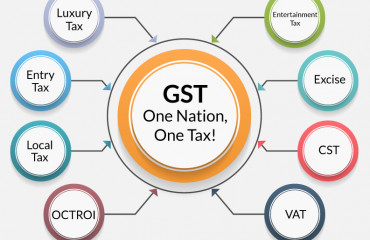
Rau of Future Generali India Insurance, highlighted India’s potential to become a $30 trillion economy, but flagged challenges in labour reforms, geopolitics, and governance.
He pointed to growth in the insurance sector, led by tech and consumer demand, but called for clarity on GST in healthcare
- Rau of Future Generali India Insurance, highlighted India's potential to become a $30 trillion economy, but flagged challenges in labour reforms, geopolitics, and governance.
- He pointed to growth in the insurance sector, led by tech and consumer demand, but called for clarity on GST in healthcare.

India is poised to become a $30 trillion economy in the coming years, though some challenges lie ahead, according to Anup Rau, managing director and chief executive of Future Generali India Insurance. Speaking at Mint's India @2047 event in the national capital on Friday, Rau expressed optimism about India's economic prospects.
"I see no reason why the future isn't as bright as it is made out to be. If people say we will be the third largest economy by 2060 or the largest by 2070, it sounds fantastical today, but it is equally fantastical when in 2007 somebody told us that in 20 years we will be five times our size," Rau said.
However, he acknowledged potential roadblocks. One key factor, he noted, will be India's geopolitical stance. "The side India takes really matters in global conflicts and immediate neighbourhood areas. Who we put our weight behind matters a lot as they come with their own set of challenges," he said.
Rau also emphasized the need for labour reforms, especially in agriculture. "There have been attempts on labour, land and agriculture which are growing with more people joining it. It requires some reforms. They need partisan support and really need to be taken care of," he said.
He pointed to structural inefficiencies in governance as another hurdle. "The quality of people you deal with in local municipalities or urban bodies or panchayats, the competency gap between them and those at every senior level is massive," Rau noted. "Somehow, we have been able to subsidize that inefficiency using technology. But somewhere that competency gap also needs to be addressed. I don't think the governance at the local level is consistent with the $30 trillion aspiration."
On the insurance front, Rau highlighted how technological advancements and evolving consumer aspirations are likely to drive growth in the next decade. Insurance enables risk-taking, and as India's economy grows, the insurance sector stands to benefit and contribute to that growth, he said.
India's population growth has been accompanied by a tripling of new insurance policies over the past decade, Rau estimated. "If you look at an average increase of premium of each policy it is at a CAGR of 3%. All the growth has come from new policies. The premiums have declined or remained the same. I think the penetration is far more than it appears, as premium as a percent of GDP may not be a fair reflection of the impact of the sector," he added.
Looking ahead, Rau pointed to emerging opportunities, such as the wearables market, including smartwatches and health-monitoring devices. These advancements may one day be embedded in the human body, raising questions about whether insurance can cover such innovations, he said.
Rau also praised the regulators for easing compliance burdens and incentivizing industries, though he noted that clarity is still needed around goods and services tax (GST) on insurance, particularly in healthcare.
